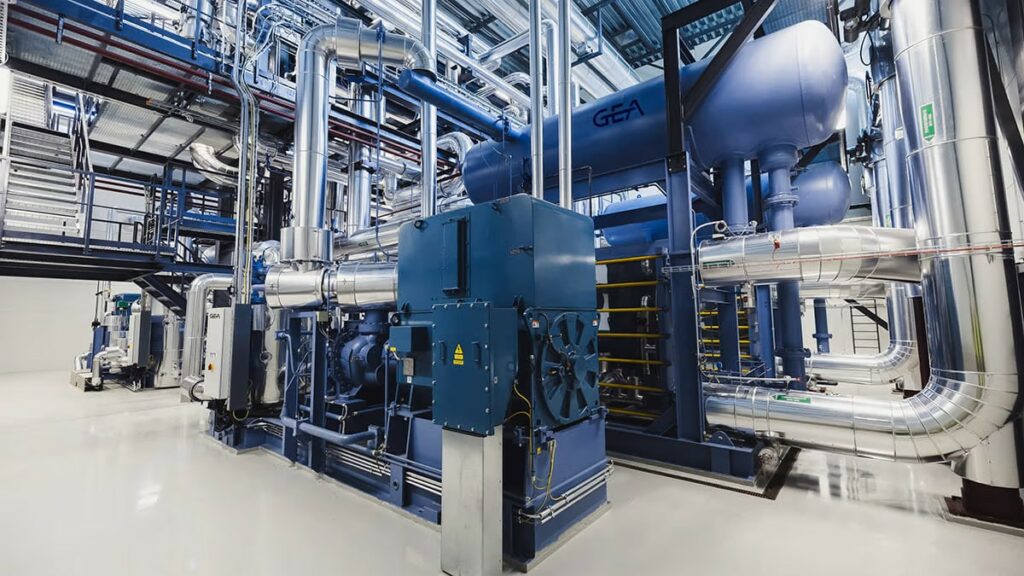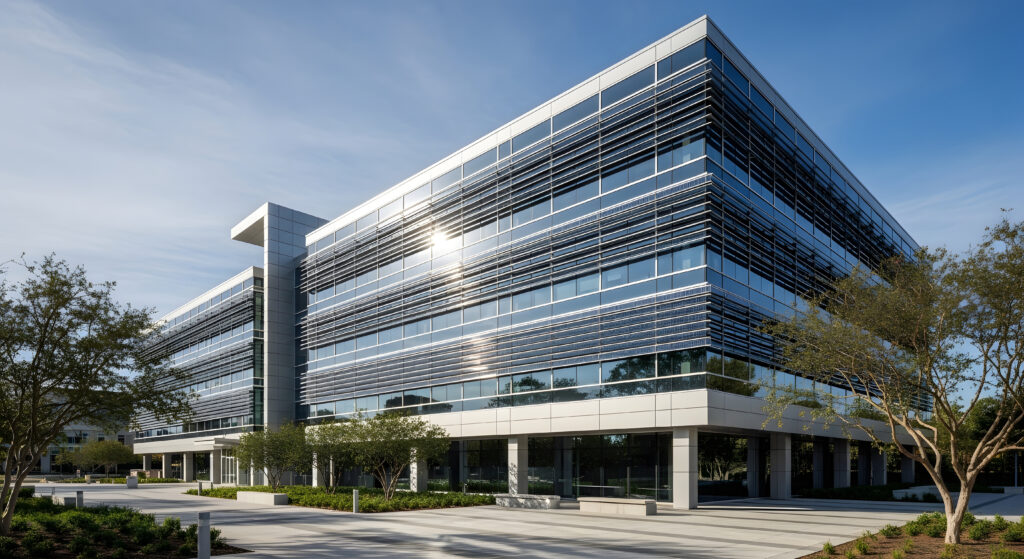Air conditioning/refrigeration technology & building automation
Process automation solutions from WinMOD
Air conditioning and refrigeration technology
WinMOD has been used by leading companies in the air conditioning and refrigeration technology sector since 1995. The focus is on machine safety, energy savings and system optimisation.
The programming and commissioning of automation systems for air conditioning and refrigeration plants was one of the first areas of business for WinMOD GmbH (then Ingenieurbüro Mewes & Partner) in 1991.
Long and difficult-to-calculate commissioning times due to thermal masses under inhospitable conditions were one of the triggers for the introduction of simulation methods – „software testing in the office“, or virtual commissioning.
From refrigeration machines such as piston and screw compressors to the simulation of complete refrigeration systems in a wide range of industrial sectors, WinMOD is now used by leading technology companies. The focus is on machine safety, energy savings and system optimisation.
These compressor technologies are currently gaining in importance through their use as powerful heat pumps for heat generation in industry and buildings. This provides an important technological basis for energy-efficient decarbonisation and thus climate neutrality in the industrial heating sector.

Building automation
Building automation encompasses all technical systems, devices and software solutions that serve to automatically control, regulate, monitor and optimise building functions. The aim is to improve energy efficiency, comfort, safety and cost-effectiveness in buildings.
Building automation is an essential component of the commissioning services required for the completion and handover of projects, particularly in new construction projects – both in the area of public building complexes (e.g. office, cultural and administrative buildings) and in industrial facilities for research, production, storage and logistics.
In addition to special proprietary building management systems, classic industrial automation components such as PLCs, HMIs and SCADA are also increasingly being used. This means that virtual commissioning (VC) methods are also available in this area and can be used even before the construction and installation work on the technical building equipment has been completed. Due to the positive experiences with WinMOD in various industrial sectors, VC is therefore also increasingly being used in building automation.
Typical areas of expertise include:
- Heating, ventilation and air conditioning (HVAC)
- Lighting and shading control
- Energy and load management
- Security and access systems
- building management system

Further process automation solutions
Typical processes that carry out continuous or batch conversion of substances.
They are divided into main and auxiliary processes.
The aim is the economical and safe fabrication of basic materials or specialised products for all industrial sectors.
Similar production processes are used as in the chemical/pharmaceutical industry, but the core here is the use of microorganisms, cell cultures or enzymes for the fabrication of products.
In future, it will be used in various areas such as pharmaceuticals, green energy and green chemistry.
The focus is on processing, preserving and refining agricultural and raw materials. Typical processes include material- and energy-oriented product manufacturing, often combined with strict quality and hygiene standards.
All processes involved in the extraction and processing of raw materials (coal, ores, salts, earths) and their conversion into basic industrial products (steel, cement, gypsum, various other building materials). These processes are usually very energy-intensive.
Refrigeration machines for cooling and system components for cooling distribution and utilisation are a key factor in both industrial plants and building automation.
Energy generation plants based on fossil fuels (coal, gas, oil), nuclear power plants and increasingly promising variants based on environmentally friendly resources such as hydropower, solar, wind, tidal, etc., as well as energy distribution plants, are becoming increasingly highly automated with extreme demands on their availability.
Water supply, from extraction, treatment, storage and distribution, as well as wastewater disposal, including transport, storage and treatment for environmentally sound disposal, are fundamentally important for a modern society and its industry.
Technical installations in road transport (general traffic control, tunnels, bridges), rail transport (signalling and switch systems, signal boxes, etc.) and waterway transport (locks, weirs, ship lifts)
All areas of technical building equipment such as ventilation, heating, air conditioning, security and fire protection that aim to improve energy efficiency, comfort, safety and cost-effectiveness in buildings.
General shipbuilding for civil, technical and military use, offshore installations as bases for wind farms, gas and oil production facilities, and underwater stations.